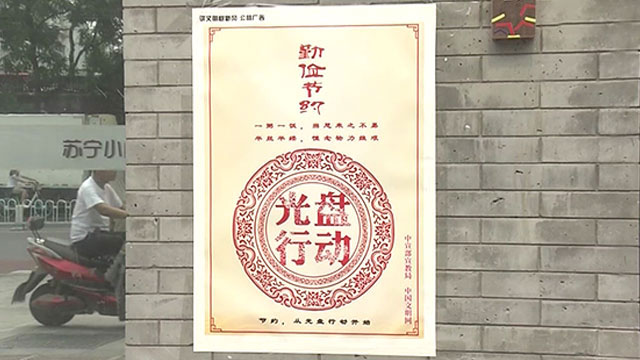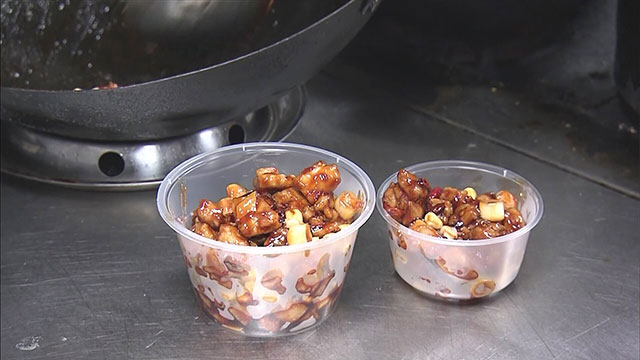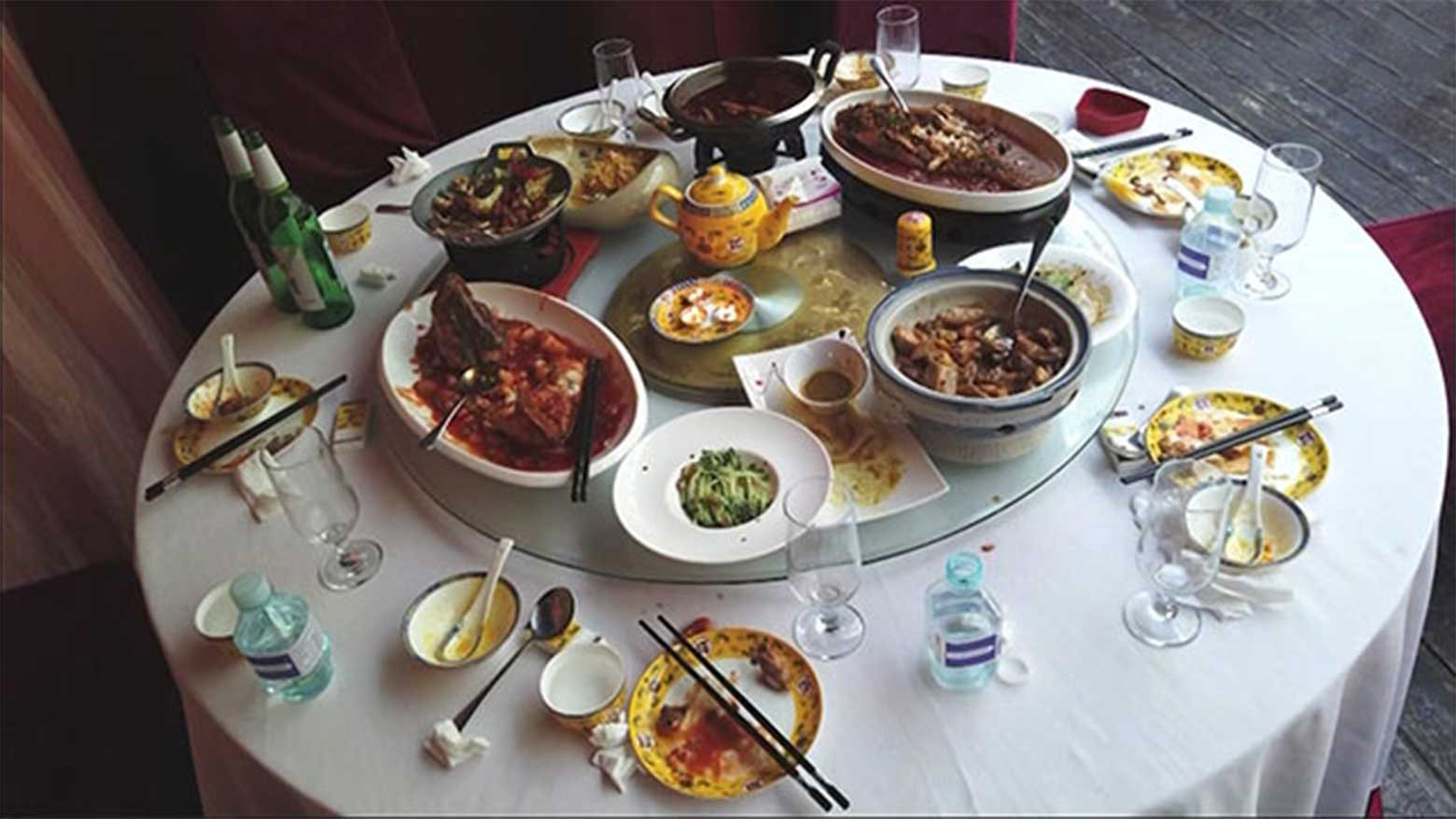The Chinese government has plastered posters that read “Guang pan xing dong”, or “Clear your plate,” on buildings throughout Beijing.
Xi launched the clean plate campaign in mid-August via official media and, quoting a 9th-century poet, asked, “Who knows that every grain on the plate comes from the hard work of farmers?”
A 2018 survey by the Chinese Academy of Sciences and World Wide Fund for Nature found that restaurants in China’s urban areas throw out more than 17 million tons of food each year. That’s enough to feed 30 million a year.

Why now?
This isn’t the first time Xi has tried to address food waste. He issued a similar directive in 2013, but its effects were limited. Now, with COVID-19 posing a threat to food security, he’s trying again.
China is almost completely self-sufficient when it comes to staples such as rice, wheat and corn, but it relies heavily on imports for some foodstuffs. As much as 85% of soybeans consumed in the country are brought in, and most of them come from Brazil, the US and Argentina—three countries that have been severely affected by the pandemic. And the fractious relationship between Beijing and Washington is only adding to concerns.
Professor Zheng Fengtian of the Renmin University of China is an expert on the country’s food security issues. “The Chinese government is attempting to eliminate food loss, while enhancing agricultural production, to be prepared for an unpredictable future,” he says.
Video-sharing platforms have been deleting clips of people binge eating after criticism by state-run media, which argued that they encourage the wasting of food. And restaurants are getting behind Xi’s campaign in a variety of ways. Some offer customers vouchers if they clear their plates. Others have “dining monitors” who ensure that customers order appropriate amounts and remind them to finish everything.
One restaurant in central Beijing has found that customers may actually have been looking for smaller portions all along. It began offering half-size servings of its dishes such as Peking duck for delivery, and it has proven so popular that profits have risen by 20%.

Will food loss be eliminated?
But old habits die hard, and Professor Zheng says it may take more than posters and voluntary initiatives to solve the problem.
“The Chinese people are fond of entertaining guests,” he says. “When they have visitors, they fill the table with dishes. This is a custom in China and it will take a long time to change.”
He believes that legislation or new regulations is the best way to bring about the level of change needed. For its part, China’s legislature, the National People’s Congress, is reportedly weighing its options. With parts of the country already facing crop damage as a result of devastating floods earlier this summer, Xi will be hoping to tackle the supply problem before it spirals into a serious crisis that undermines Communist Party leadership. In this sense, the clean plate campaign is just the first step.

